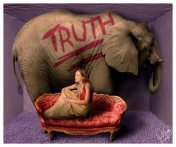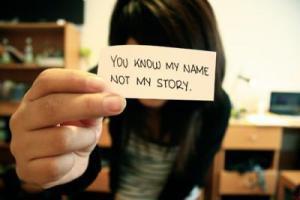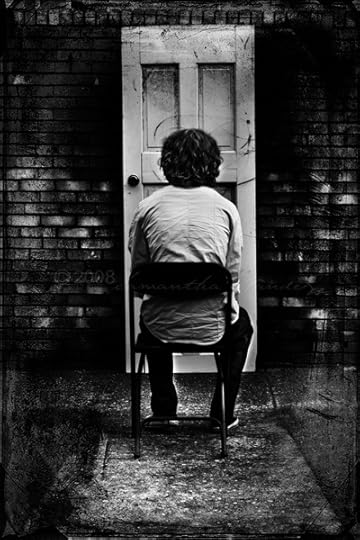Jim Palmer's Blog, page 59
October 25, 2013
Common objections to shedding religion
I began sharing my faith journey as an author in 2005, publishing Divine Nobodies: Shedding Religion to Find God (and the unlikely people who help you). The book struck a nerve, and my Inbox was flooded with emails from others who were trying to untangle their lives and faith from religion. Ordinary people, mainly from a Christian background, they had come to the end of their rope with faith and God, but felt understood and validated through my story, and inspired by the possibility that it could be different.
Seeing that people often got stuck in their disenchantment with religion, my follow-up book, Wide Open Spaces: Beyond Paint-by-Number Christianity, gave a glimpse into what it might look like to live a religion-free relationship with God. I also noticed that many of these people in the throes of spiritual crisis chose to abandon God and Jesus altogether. My third book, Being Jesus in Nashville: Finding the Courage to Live Your Life (whoever and wherever you are), spoke to this issue as I shared my story of discovering a religion-free Jesus who finally set me free from my religious pathologies and led me forward in my spiritual pilgrimage.
People often take issue with and object to people who are “shedding religion” to know God. I decided to identify and address some of the most common objections I hear.
You don’t go to church anymore
If a person’s involvement in a church feeds and reinforces a message and perspective that hinders their knowing God, then it makes complete sense not to involve yourself there anymore. Many Christians receive their understanding about God through the institution of Church and when they discover this understanding is deeply flawed and they see how this flawed understanding has damaged their lives, they remove themselves from their church. The reason most people object to this is because these confuse leaving one’s church with leaving one’s faith. Research shows that “church leavers” grow stronger in their faith, as opposed to digressing in their faith. The issue is also controversial because people wrongly equate “church” with their specific form of church. There are an endless number of forms of church ranging from highly organized to practically no organization at all. Many people who leave organized church eventually connect in smaller, more informal types of community, which may not comply with the letter of the law when it comes to institutional church but fulfills the true spirit of “church.”

You are reading some really weird books
Many Christians in the “shedding religion” process will read books that: a) looks at their Christian faith with a critical eye, b) promotes spirituality over religion, c) offers a different and fresh view and perspective on faith and God. Shedders will be drawn to authors who offer something beyond institutional Christianity and offer the prospect of knowing God and following Jesus as a way of life as opposed to check-list Churchianity. many of these authors, including myself, get hammered by the Christian establishment. If you mess with city hall, you’re going to pay for it. People criticize such authors as having “bad theology.” In my opinion, many of the criticizers have “bad theology,” and so I’m not sure where that argument ends. People who are “shedding religion” are also drawn to books that promote and speak to spirituality over religion or books that focus on nurturing your inner world. You’d be surprised to know even how many church-going Christians secretly read Eckhart Tolle books but would never admit it. For some people, reading one chapter from The Power of Now was worth more than one year of sermons. This is also the reason why some Christians become interested in Buddhism and Eastern spirituality; these seem to speak more deeply to the root condition of humankind and one’s inner spiritual world as opposed to the focus of a lot of pop-Christian writings. At first, some people are not aware that there is a rich Christian tradition of contemplatives and mystics who lived a very robust Christ-centered spirituality. A few contemporary examples might be Thomas Merton, Ricahrd Rohr, Bede Griffiths, and Flora Wueller.
You are in danger of going off the deep end
Perhaps one of the most annoying things (to those who judge them) about people who are shedding religion is that they begin thinking for themselves. Some Christians have come from churches where the idea is fostered that congregants should only expose themselves to church-approved leaders, teachers, writers, musicians, politicians etc…because doing otherwise would be the equivalent of purchasing a one-way ticket to the flames of hell. Apparently, only a very select few people are capable of discerning truth on their own, the rest of us are ill-equipped for doing so and would be easily lured into all kinds of error if left to our own. I know this may be difficult for some to believe, but people are capable of being exposed to all kinds of differing views of God, and can discern for themselves what truth is present in these views, and what of these views seems inconsistent with truth. I have a Buddhist friend; i have detected truth is things he believes but i did not become a Buddhist. I have an Atheist friend, and I totally agree with this person’s views on all kinds of things, including some of their objections to God, but i did not become an Atheist. I have a N.Y. Yankees friend, i agree that the Yankees have some of the best baseball players but I did not become a Yankees fan. People are truly capable of doing this sort of thing.
When people begin thinking for themselves and base their opinions on firsthand personal experience, they realize that the world doesn’t fit so nicely into all the labels and boxes that religion is sometimes prone toward imposing on things. Religion and politics seems to share a difficulty in disagreeing with others without demonizing them, and wants to slice up the world into the “us” and “them” camp or the “right” and “wrong” camp. I’m not talking about turning a blind eye to evil in the world, or pretending that one’s beliefs doesn’t fuel such evil. All religions, including Christians, have justified evil in the name of God.
You can’t give a straight answer
Lots of questions aren’t so easy to answer anymore for Christians in the “shedding religion” process. For example, questions like: “Are you a Christian?” or “Do you believe in the Bible?” or “Do you go to church?” or “Do you believe in the gospel?” are no longer “yes” or “no” questions for a person who is “shedding religion.” He or she is immediately wondering what is your definition of a “Christian,” and what is your interpretation of the Bible, and how you delineate what “church” is, and how do you understand the “gospel?” By not answering “yes” or “no” it is not a sign that the person is “dodging the issue;” they legitimately cannot answer with a simple “yes” or “no.” It would be better to ask more open-ended questions like, How is Jesus Christ relevant to you?
[My disclaimer: Some people say I am “too hard” on the “Christian establishment.” Let me be the first to say that I know many people who identify themselves as “Christians” who are deeply spiritual, and not guilty of the things I described above. Some of these Christians have had a big influence on my own journey. I also know there are organized forms of church that promote true and authentic Christ-centered spirituality, as well as open, honest, and authentic relationships. I know many Christian churches that are wonderful expressions of love, compassion, and service in the communities where they exist. Since my personal experiences are in some cases related to churches (including my own) and Christians (including myself) that were guilty of the above judgments, I am prone to speak of it. Based on my experience the last several years as an author and spiritual director/coach, I have encountered countless numbers of people who have a similar experiences. I mainly wrote the above post in hopes of encouraging more understanding about many people who are in “shedding religion” mode.]


October 24, 2013
15 Things Jesus DID Say
15 Things Jesus DID Say:
“There’s only one litmus test to authenticate if someone gets what I’m about – love.”
“The kingdom of God is here and now, which means it’s not somewhere else and later.”
“If you’ve reached perfection on your journey, feel free to judge others. Otherwise, be quiet.”
“My peace is not as this world gives. Your strategy to control circumstances in order to be happy won’t work… ever.”
“You religious people have your nose buried in the Bible, feeling all smug about your spiritual maturity. But you wouldn’t know my truth if it knocked you in the head.”
“There is no mountain, sacred place or church building where God expects to be worshiped. True worship is a way of seeing – it’s spotting and honoring the divine in all things.”
“You think you are doing well because you have not been hauled off to prison for murder, but your harsh and critical spirit is no different.”
“Embracing my truth will make you a heretic in most people’s minds and you will be persecuted. No worries; you’re on the right track in my kingdom.”
“God and I are one, you are included.”
“I have to die. Otherwise, you’re going to create a religion around my human personhood and personality, rather than embrace and give expression to my spirit and truth.”
“Don’t say you love God and then hate people. Those two things can’t be true at the same time.”
“You and God are not separated and never have been. You are connected to God like a branch to a vine – the essence and nature of God is the sap running through your veins.”
“You can’t reduce my way to a book. The same spirit that filled and led me fills and leads you. Follow that spirit.”
“You think your humanity is an affront to God. If this were true how could I be one with God?”
“You look into the sky to find some God that sits on a throne. You want to see God? You’re looking at him. Now, see that same God as yourself.”
- Jim Palmer


October 23, 2013
Four Thoughts About Judging Others
Four Thoughts About Judging Others:
1. You don’t know what is going on inside another person. How many times have you been asked how you are, and said “fine,” even though you weren’t? We all know this is true. We mask our pain. We put on the happy/smiley face when we are dying inside. Just because you don’t see it, doesn’t mean another person isn’t hurting. A person’s actions or behaviors may not be any indication of what is going on inside of them.
2. People are doing the best they can. I know this is sometimes difficult to believe about another person. I get that. It’s hard for me at times to believe that about others. But think about it. You know it’s true. It’s complicated! Life is complicated! People are complicated! There are a lot of moving parts inside and outside a person. Aren’t we all a little off – carrying pain, unhealed wounds, ways we protect ourselves, and other dysfunctions we have picked up a long the way?
3. You don’t have all the answers. At times we can look at another person’s life and just see all this stupid stuff it appears they’re doing. On the outside looking in, another person’s life seems pretty cut and dry to us in terms of what they should be doing or not doing or how they are handing a situation or whatever. It’s amazing how quickly we turn into the infallible personal life coach when it comes to another person’s life!
4. Being judged hurts. It’s quite possible that the most painful human feeling is one of being judged. There’s so much involved – silent pain; being misunderstood; rejection in the very moment we most need understanding, love and acceptance.


October 21, 2013
On being off the grid of Christendom
When I went off the grid of organized Christianity, I went through this blackout period when I could not stomach hardly anything to do with God, Christianity, the Bible, prayer, etc… An interesting place to be for a former seminary grad and successful Senior Pastor. Didn’t go to church, didn’t converse about God or Christianity, didn’t pray, didn’t read my Bible, didn’t listen to “Christian music”… nothing! It was during this period when I, in many respects for the first time, became deeply connected to myself, others, the divine, and life, and became a new foundation for forging ahead, including my interests in Jesus.
*
There was a way that art opened me. It was the poets, painters, photographers, musicians, dancers, writers, tattooers, playwrights and performers who emboldened me to plummet the depths of my own soul, and travel the distance of my deepest feelings.
*
I found that most people don’t really want to know the truth. There are plenty of people who want to know the truth on their terms or require that the truth be contained within certain boundaries of comfort. But truth can never be known this way. You have to seek truth from a place of not knowing, and that can be a very threatening place because we think we already know the truth or we are afraid of what the truth might be.
*
I came to a decision. Whatever anyone said they believed, including myself, if it didn’t produce love, freedom and beauty, I didn’t want to have anything to do with it.
*
Jesus said “I am the truth,” which we mistakenly turned into some kind of a theological proposition about God, the gospel, eternal life, etc… Jesus confronted this mentality when he scolded the religious leaders for burying their heads in the scriptures while missing the truth that Jesus was, lived, and expressed. Jesus’ words “I am the truth” have so many layers of profound significance that many Christians never discover because they plug these words into some sort of formula for “being saved” or theological litmus test. We have pressed no further than the foot of Mt. Everest, when it comes to these words of Jesus, and speak as though we have reach the summit.
*
So much of religion seems to be about fear:
fear of going to hell; fear of having bad theology;
fear of not satisfying your end of the bargain so God will favor you and bless you;
fear of others finding out how much you’re not really like the person you project and pretend to be; fear of trusting your own inner guidance and fear of thinking for yourself;
fear of not upholding the expectations of your religious sub-culture; fear of sexuality;
fear of people who are different;
fear of the world…
I spent over a year soaking in one verse of scripture, “God is love” and every one of those fears disintegrated. There is no fear in love, or so I learned.


October 20, 2013
21 Things I Did, Exploring Spirituality Beyond Institutional Religion
21 Things I Did, Exploring Spirituality Beyond Institutional Religion:
1. I made peace with my religious past.
2. I took responsibility for my spiritual journey.
3. I stopped dividing up the world into “sacred” and “secular”.
4. I began listening to and trusting my inner voice.
5. I started looking past the externals, and relating to the deepest reality I knew was present in every human being.
6. I quit making my humanity the enemy.
7. I resisted the need to build a persona around being an enlightened person.
8. I opened myself to the rhythm and flow of life in nature.
9. I explored what it meant to truly be “present” in life and became a student of my spiritual aura and energy.
10. I focused on addressing the root of my suffering.
11. I paid attention to my deepest desires and passions.
12. I sought to cast off my fictitious self, and be an authentic and fully-expressed me.
13. I explored the connection between spirituality and sexuality.
14. I expanded my relational world beyond religious sub-culture.
15. I resisted creating a new religion out of my latest discovery.
16. I operated with the assumption that every human being knew something I needed to know.
17. I resisted latching onto the latest guru, and began seeing all people as my teachers.
18. I explored new fields and areas of interest that were largely unknown to me.
19. I gave up the idea of needing to accomplish some epic thing for God.
20. I approached my life as a reality I was free to create.
21. I became interested and involved in the lives of people I encountered naturally along the everyday paths of my life.


Quick trip to Pensacola
So, we’ve been in Pensacola for the weekend visiting Whitney at her Naval Station. This is our last time seeing her before she is sent to her first command at Whidbey Island, Washington. Whitney will be assigned a squadron as an “Aviation Ordnanceman.”
I guess we’ll be going out to Washington State to visit Whitney in the near future but it was being with her here in Pensacola. We are headed back to Nashville tonight.
Jessica and Cera have been on Fall Break and are back to school tomorrow. Heather and are going to tag-team on the drive back. I have to be back at school to teach tomorrow afternoon.


October 17, 2013
God goes wherever you go.
The word “essence” means:
1. The intrinsic or indispensable properties that characterize or identify something
2. The most important ingredient; the crucial element
3. The inherent, unchanging nature of a thing or class of things
With this in mind, consider that the “essence” of who you are is a Son or Daughter of God. As the scriptures say, God’s being is the source of your being. You are not separate or separated from God. That’s not even possible. If you could somehow exist independently of God that would make you God. It’s interesting how some people take offense by my pointing out our divine origin, roots and ancestry, all the while missing that their insistence that we are not part of God is claiming to be God themselves.
The truth is that he essence of who you are is a Son or God or Daughter of God – these are the intrinsic and indispensable properties that identify you; this is the most important and crucial element of you; this is the inherent and unchanging nature of you.
As a Son or Daughter of God, God goes wherever you go. God is your source, which is what is making you possible in each moment. As a part of God, there is also much more possible in each moment such as… the strength of God, the sight of God, the light of God, the wisdom of God, the love of God, the peace of God, the beauty of God, the goodness of God, the freedom of God, the compassion of God, the abundance of God. All of these are your intrinsic and indispensable properties, the crucial element of who you are, the inherent and unchanging nature of who you are.
This is why transformation is not about becoming someone or something else, but being who you already are and always have been. Transformation is simply seeing and accepting things as they truly are, namely yourself.
This is what Jesus meant when he said, “I AM the truth.” This is what Jesus wants us to see and accept about ourselves.


October 16, 2013
Life showed up.
I opened my front door this morning, and was a little rattled to see her standing right there waiting for me. She said nothing and only stared – not a casual glance but a gaze that reached down into my soul. There she was, Life. I dropped my hands to my side and gave myself over to her eyes. Deep emotion washed through me like rain. Something in me wanted to send her away for all the heartache and suffering she had brought my way. There were times when it felt as though she had abandoned me all together. Times when I went looking and could not find her.
But then I saw that her eyes had become gentle and loving, telling me that she had never meant any harm, only loved me, and had been there by my side all along. I wanted to trust her but I was fearful. Could I? Could I trust her – trust her after so much heartache over all these years?
Suddenly, this big beaming smile slowly filled her face. It was like she knew something that I didn’t – like she was not worried at all about me and knew that everything was exactly as it should be.
I became lost In her eyes and smile. I saw hope there and strangely felt as if everything was truly and mysteriously okay and would be okay.There was no logic or rationale for it; it was something I felt to be true.
She lifted her hand with her palm facing towards me. I studied her palm for a moment. I understood. She was inviting me into a choice. You see life doesn’t really “just happen,” you have to consciously choose it – sign up for it, show up, be there. It wasn’t an easy choice. It would be risky, and plenty of unknowns. But in that moment, looking her eyes and smile, getting her heart and spirit… I raised my hand too. Slowly I placed my palm against hers.
I closed my eyes and a smile was born across my face. Palm to palm with her, I somehow felt like something had become a little more whole inside of me. We just stood there a while palm to palm, and I felt that wholeness in me…it was peace and joy all mixed together. When i opened my eyes back up she was gone. Life was no longer on the outside looking at me, she was running pure and free inside my soul.


October 15, 2013
We will never have the complete and full picture of Jesus’ life.
“Reading the gospels, you might get the impression that a day in the life of Jesus went something like this:
9:00 a.m. Heal blind man
9:10 a.m. Deliver sermon
9:30 a.m. Rescue adulterous woman
9:50 a.m. Feed five thousand people
If I were to write an account of your life as a short story, I’d have to select which of your life experiences to include. What would make the cut would be those I judged to be the most significant and defining experiences. From each selection, I’d have to further decide what it was specifically about the experience that I felt was noteworthy. Because of the obvious spatial constraints of the short story format, I’d most likely have to leave out many “incidentals.”
Who cares that you went through the Starbucks drive-thru moments before that big car accident occurred and you stopped to offer assistance? And there’s really no reason to mention the ten minutes of casual chitchat you were engaged in before you launched into that extraordinarily enlightening advice you gave your friend who was on the brink of self-destruction. If I’m recounting your life in a short story, all that minutiae is unnecessary filler.
What gets lost in the translation of the life of Jesus is this filler—the incidental things that Jesus thought, said, and did—that we will never know. It’s hard for us to imagine that Jesus’ poignant talk with the rich young ruler was a five-minute encounter on his way to lunch, or that after Jesus rescued the adulterous woman, he went on to have a twenty-minute conversation with her about some mutual friends, or that Jesus’ main motivation for accepting Martha’s invitation into her home was needing to use the restroom, and fast!
It hit me that Jesus’ life was filled with the same mundane realities as yours and mine. I could plainly see that being Jesus could not mean scripting my life in a way that resembled the specifics we know about him from the gospels. Jesus wasn’t always doing something like the daily schedule I came up with implies. Applying that standard, even Jesus would fail at “being Jesus.”
We will never have the complete and full picture of Jesus’ life. You can’t squeeze thirty-something years of living into thirty-five pages—which is about the length of each gospel. Heck, you couldn’t adequately cover a week of Jesus’ life in thirty-five pages. For everything we know about what Jesus did, there’s far more we don’t know.”
- Jim Palmer, Being Jesus in Nashville: Finding the Courage to Live Your Life (whoever and wherever you are)


October 14, 2013
Every human being on this planet has layers.
“The thought of performing miracles came back to mind. Jesus healed the sick, calmed storms, fed thousands of hungry people, and turned water into wine. These were the kinds of things that had come to mind the night that I’d considered what Jesus might have done had he been on the corner of Second and Broadway in Nashville. And I admit, it would be great to be able to perform drive-by miracles, to remove a girl’s birthmark, to heal a man’s cancer, to put a large sum of money in a homeless man’s pocket, to give a childless woman a son or daughter… Who wouldn’t want wonder-working magic in their back pocket, or special powers they could use at will when needed?
But then, I took a moment and re-imagined that downtown Nashville scenario a different way. On that night months ago, when the pedestrian light turned green and those two masses of people began crossing, what would it have meant if I had simply stepped off the curb and onto the street with the intent of being a neighbor to each one of those people coming towards me? Without respect to race, religion, age, history, sexual preference, political party, or any other condition, what if I had been determined to be a neighbor to each and every person?
Even if I had removed the girl’s birthmark, healed the man’s cancer, resourced the homeless man, and given the woman a child, the basic fact of human existence would have remained unchanged. We are all faced with physical imperfections and life circumstances that are subject to change. One day, each of us will die by disease or some other hand, and none of us will have escaped our human journey without an unfulfilled longing, a wound, or suffering. That’s just the way it is and always will be. There is a frightening impermanence woven into the mosaic of human existence. The only thing we can know for sure is that whatever it is (our relationships, health, finances, job) it will change, and there’s no escaping that reality at the core of our journey.
Every human being on this planet has layers. Gender, race, ethnicity, personality, scripts, roles, religion, politics, education, net worth, achievements, appearance, wounds, imperfections, brokenness, patterns of thinking and behaving… But, once you peel back these layers, at the core of every one of us is a human being who desires to be seen and wants love, acceptance, understanding, compassion, empathy, and validation. No matter how bad life gets, if these essential needs are fulfilled, there is a basis for moving forward and living another day. I could see how this was the secret to Jesus’ ministry—he freely, liberally, and unconditionally gave what people needed and desired most. It was the miracle that changed and transformed people’s lives.
For all the people Jesus healed, there were an endless number of people he did not. Even those he did heal eventually grew sick and died. When I went back and reread the gospels, I began to see these miraculous acts of Jesus from a different perspective.”
- Jim Palmer, Being Jesus in Nashville

















